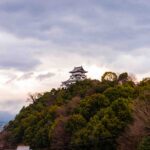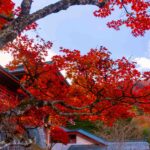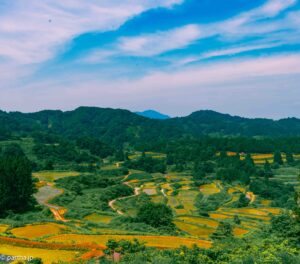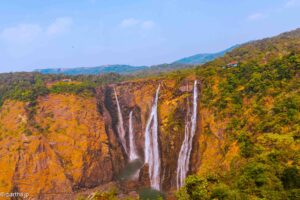
Going Native
Twenty one years ago, on a cold winter evening, I landed in Japan at the Narita airport. It was the first foreign country that I set foot in.
Some of the memories of that evening have faded, I remember there was no aerobridge and I had to descend the stairs of the Cathay Pacific flight and board a bus to the terminal.
The immigration officer asked me for the duration and purpose of visit and stamped my passport. I carried a bunch of documents explaining and supporting the purpose of my visit but they were not required.
My first trip lasted a week, I came for a training with a Telecom company in Japan that I was to represent in India. I landed in Tokyo, went to Nagoya and then flew back to Bangalore.
The only memory that stands out from my departure is that the immigration officer asked me if I was a Chef. I definitely wasn’t one, not even an amateur one but that question has puzzled me to this day.
A few months later, my employer decided to send me to Japan for a longer term. I went on a business visa that allowed me to live in Japan for three months at the end of which I went back to Bangalore and then returned on another business visa. I extended my visa for another three months and when my employer was sure that they wanted me to work for them for a longer term, applied for a work permit.
Settling down in Japan seemed like a far fetched idea those days, most Indians I knew stayed here for a while and then went back to India. I knew only one Indian who had a Permanent Resident status and none that was a citizen.
I would renew my visa every year for the first few years and then every three years after that. The trips to the immigration office were straightforward in the early years in Nagoya, the office was located in the centre of the city, wasn’t very crowded and renewing visas was a simple job.
When I moved to Tokyo a few years later, the immigration office was a bit further away, changing visa status was required, making the process a bit more complex and the immigration office always crowded.
I realised the risks of stepping outside the cocoon of working for a Japan registered company, when I changed jobs and was in the process of establishing a new company and my visa renewal was rejected. There were a few sleepless nights, anxious days and finally when my visa was renewed I looked for a better solution. A Permanent Resident visa, or永住権 took a few more years, my wonderful lawyer taking care of the process and then finally I did not have to renew visas anymore.
But I worked in travel and visiting different countries brought about complexities, visas were denied, sometimes passports were stuck at embassies and I had to cancel trips. The thought of acquiring a Japanese passport, for the convenience it offered, first came to mind.
There is a constant insecurity in the life of an immigrant, even as a Permanent Resident, where even a traffic offence can change your life and detach you from one that you have gotten so used to, sending you into an exile, trapping you in a limbo where the past seems impossible to recover.
We live in an increasingly tribalistic world, hyper nationalism is rising everywhere and is always is accompanied by efforts to exclude ‘the other’. An immigrant cannot shake off the tag of being the outsider, your race, your colour is always your identity.
The years that you spend working in a foreign land can be wiped away in an instant if someone in power decides that you do not belong because you carry a different passport.
We expected technology to make the world a smaller place but it makes the hearts grow smaller, there is safety in excluding the other, education becomes a tool of indoctrination and racism that we thought was on the decline has resurfaced with new justifications and an old venom.
But there is the dilemma of detaching yourself from your face, acquiring a nationality where people look a lot different from you. In a world that shames you for your race and colour, is it treasonous to acquire a nationality that is very different from your origins.
Acceptance is a continuous struggle, the physical one in a hyper tribalistic world seems impossible to achieve but the legal one is still reachable.
Though I have no complaints about Japan, I have always been made to feel welcome, I have never experienced discrimination and the efforts to exclude have always been based on petty jealousy, both professional and personal, rather than bigotry.
There is the emotion, then there is the practicality and there is the uncertainty. I was not sure for a long time whether I would spend all my life here.
‘Will you die in Japan’, someone asked me once, an innocent question though not well put.
‘Well it’s not under my control’, I replied cheekily.
There was something unfulfilled as I continued my life here, holding a passport for a country that required a visa for a majority of the countries, and dichotomy of living in a country whose citizens did not require visas to a majority of countries.
There was also the insecurity that a Permanent Resident status doesn’t last forever, leaving Japan for more than a year could get my status revoked. The years spent paying into the National Health Insurance and the Pension plans could come to nothing out if my residence status was revoked.
The emotional hurdles take time to overcome and the realisation that spending your life in a country that gives you a home, a career and over the years defines you is nothing to feel guilty about.
The Process
One day in the year 2018 I decided to look at what was required to become a citizen. The first step was fixing up an appointment with the Legal AffairsMinistry that looks after the citizenship applications.
The Naturalisation process is quite different from the one for getting a Permanent Residency. I did not have to step inside the immigration office during my PR process, the lawyers handled it for me.
However for Naturalisation you need to go to the legal affairs ministry in person. A Lawyer can help in the document preparation process but submission has to be done in person by the applicant.
A good friend of mine called up the Legal Affairs Ministry and set up an appointment for me a few weeks later.
I went to the office in Kudanshita, walkable distance from the Takebashi station on the Tozai Metro line. The reception area is small, a narrow entrance and compact meeting rooms separated by a thin partition.
I met a middle aged government employee who looked over my details.
‘You need to get your parent’s marriage certificate, your birth certificate…..he rattled off a list of documents that were required.
I knew that my parents did not have a marriage certificate, registrations were required but rarely done in those days and I knew I had hit a roadblock.
When the task in front of you seems too large or the complexity unfathomable a paralysis strikes, there is inaction in the ignorance of a course of action. The Indian legal system was beyond my understanding and for a while I gave up.
It took me a few more years to make a second appointment. The Covid years came in between, travel stopped and there was little scope for me to get any documents prepared in India.
I decided to visit the Legal Affairs Ministry again and go over the process of applying for a citizenship. A lot would have changed in the four years and I needed the latest requirements for filing an application.So I called up to book my next appointment .
I made the second visit with my wife and met a kindly middle aged lady. She looked over the old history, the documents that were requested during the previous visit , almost four years earlier. She added more documents that I needed to prepare for the application.
The process for naturalisation in Japan in unique in the amount of detail that is required. There is a family register that needs to be prepared and in order to confirm all the information for the family register detailed information of siblings, their birth certificates, marriage details, details of children, a family tree, death certificates of deceased parents, marriage certificate of parents and affidavits proving that your living parents are actually living are required.
I looked at the list of required documents and imagined the number of affidavits that I would need to prepare and was overcome with dread. The law courts in India are extremely fickle, there are people who can prepare affidavits proving they are the Prime Minister of the country(it actually happened)and there are others which will refuse to prepare affidavits to confirm a person is alive even if that very person walks into the courts.
We needed affidavits to
i) Prove my parents were married
ii)Prove my mother was alive(my father passed three decades ago)
iii)Prove my mother-in-law was still alive(my father-in-law passed a decade ago)
iii)Prove one of my wife’s siblings was a sibling( he did not have a birth certificate issued by the municipality)
iv)A family register for both me and my wife
We were lucky that a good family friend was a lawyer and as we explained the requirements he prepared a list of affidavits that were required he prepared the drafts and sent them over. We got the affidavits printed on stamp paper, found notaries and got them notarised. The notary came over to our house to ensure that the parent for whom we were preparing an affidavit for actually existed.
So we came back from the Indian trip with a stack of affidavits, a record for all the family members, birth and death certificates and copies of government issued identity proofs for all living family members.
The next step was to get another appointment with Legal Affairs Ministry. I called up the office and suggested a few days in the following month. I was in for a surprise, the earliest appointment I could get was six months out and the beginning of March of 2023 was when there were open slots.
I knew that I would be traveling in the first two weeks of March so decided on a date in the third week of the month. Since we had six months to the next visit, complacency set in and there was little thought given to the process till January 2023.
We started going over the list of documents required, the photocopies of passports and our resident cards. The affidavits needed to be translated into Japanese but I held off on getting them translated till I could show them to my case officers.
I could understand the need for birth and marriage records but I was not sure if an affidavit would suffice for the rest. There was a cost involved in translation, legal document translation was not something I was familiar with and I worried whether I could do a good job of the translations.
March 2023 came, I returned from my Europe trip and started working on getting the photocopies ready. We had 12 passports between the three of us, spanning 20 years and making three copies of each took time.
We reached the Legal Affairs ministry, early as usual, and waited for our case worker to come and meet us. We realised our first mistake, all copies had to be in A4 size and we made the passport and resident card copies in B5 size. The case worker glanced over the affidavits, as the content was still in English, she would not be able to confirm whether they were sufficient.
We also needed a certificate from the Indian Embassy confirming we were citizens. They had a name for the certificate and the Embassy issued it for a fee.
She then gave us a few forms that we needed to fill along with an instruction booklet.
There was a personal history form where we needed to list down the dates for all major events in our life, from birth, entry into kindergarten, each city that we lived in, each job that we worked at, marriage, birth of child….
There was a form to write down family income, expenses, savings, investments. This also needed to list down every asset we owned, every loan that we were paying for.
There was a document where we needed to explain the reasons for wanting to become Japanese citizens, how we could contribute towards the country.
We needed to print out maps showing where we lived, where we worked and how we traveled from home to the place of work.
There was the travel history form listing down travel over the last five years. For the first time I was thankful that the Covid years had restricted my travel.
We also needed to submit pictures showing us intermingling with other people in Japan. We needed to submit around 2-3 pictures, there were no specific requirements for the pictures however they had to have other people in them.
Finally there was the application form, the simplest of all the forms. We needed to fill one form each, with our names, parents names, the name we would choose after becoming Japanese citizens and the place of family registry once we became Japanese citizens.
Japan has a rule that the family name should be written in Chinese Characters(Kanjis). For those who are not familiar with Japan , the Japanese writing system has two sets of alphabets, Hiragana for Japanese words, Katakana for non-Japanese words and Kanjis(pictorial characters that came from China). You need to be able to read around 1500 pictorial characters to read a newspaper. The number of characters are far more numerous but 1500 is what is required to get by.
Our case worker told us that the rules were changing and we could write our family names in Katakana(the alphabet for non-Japanese names) soon. We could still choose a Kanji for the family name but it would not be a requirement in the near future.
Since we had some time, our case worker asked us to do a Japanese test, relatively simple but one that involved writing by hand. It’s been a while since I wrote by hand, typing on computers has been my primary mode of transcribing and I had forgotten to write even the Japanese alphabet by hand.
Our case worker told us to practice writing as a Japanese language test was possible at the time of application filing. She suggested a few books that we could read to practice for the test.
Our next appointment was after 5 months, in August of 2024 and the aim was to finish the submission on that day. There was no room for complacency this time around, there were a lot of forms to be filled, all in Japanese. We were not using a lawyer for my application and was planning to do it on my own which meant everything had to be done and checked by us.
So we came back with the forms and started a plan for filling them up. The first and the most important one was the document explaining our reasons for wanting to become Japanese citizens. It is called 帰化行動書 It had to be written in hand, in Japanese and had to be detailed. The important part was how we could fit into the Japanese society and contribute towards it.
I created a draft, asked a friend to review it who suggested some improvements and after a few alterations the document was ready. My wife did the same, creating a draft and getting it reviewed by a colleague.
The next part was writing the personal history, the tricky part was remembering the dates of the various cities we lived in, the jobs that we worked and resigned from. It took a while to fill in the details, review the language, write down the names of schools in Katakana and ensure that the dates were reasonably accurate.
The travel history form was relatively simpler, the lack of travel during the Covid years was a blessing and I was able to write down details of my wanderings in three pages.
The form asking for details of personal income was simple, our annual tax statements served as the reference, a car loan, a house loan and our son’s college fees was the outflow and we had to show respectable savings, enough to sustain a lifestyle in Japan.
Over the next few months, we spent every weekend, holiday and any other free time going over the details, reviewing, correcting and filling out forms. Friends helped, a very good friend reviewed the documents, pointed out mistakes, sometimes grammatical, other times a wrong understanding of what was asked, but as August 2024 neared we were ready.
The paperwork that needed to be filed was tremendous and our case worker put in 2 hours as the allocated time for submissions.
We arrived early as usual, waited at the small reception room in the Tokyo Legal Affairs department till our case worker came, greeted us and led us to one of the cabins.
She went through each document, each form, asked us to fill out the application form again, made corrections in the forms, took photocopy of pages we had missed out on and finally the submission was done.
My experience with bureaucracy in Japan has been positive, the staff at the ward offices have always been extra helpful and our case worker was no different. I cannot imagine any other country where government officials corrects your mistakes while accepting your documents, takes photocopies of the ones we missed out on and helps you in the process of filing the application.
We were told that there would be a review and that she would call up to set up an interview. However we had to ensure that any changes in the status, a job change, an address change and any travel outside Japan had to be reported.
The only additional document she asked for was a notice from the pension office confirming we were delaying my son’s pension premiums. He was still a student, at a university in Canada and we could obtain a delay in the start date of pension.
There was a sense of relief once the filing was done. We prepared the affidavits in August 2023 and it took us another year to file the application. We had spent countless weekends going over the details, checking and rechecking each document and finally it was done!
We did not change jobs, or houses however I travelled more than before. So I had to call up the legal affairs department before leaving Japan and after returning. I had to inform the destination, duration of visit and purpose. I called them every month, sometimes more than a few times each month and faithfully reported details of my upcoming sojourns.
Once the application was filed, a a different case worker was assigned and we knew her only by her first name. She was the one we were supposed to call and inform when traveling, she called up a few times, confirming details that we had filled in, reconfirming order of how names were written.
She called up again in late January 2025 to set up the interview date. I had a choice of a few days in the 2nd week of February and since there was travel planned, we settled on one of the days.
We would be interviewed separately, an hour assigned to each and asked to go over details of what had been filled in. The interviewer would take a Japanese test if they felt it was necessary.
We went to the Legal Affairs ministry on a mid winter afternoon, both of us taking off half a day from work. We had been instructed to wait at the reception and someone would come and meet us.
The new case worker, another middle aged lady came, she checked the documents that had been requested, had doubts about one of them, went to check with her supervisor, came back assured that the documents were fine and started the interview.
The interview goes over every part of the application, details of birth, hometown, college, jobs, moving to Japan etc. Then she asked me details about my wife’s work, some other family details, questions on the property we owned in India and my interview was over.
She took a small break and called my wife for the interview. We’d been instructed not to talk to each other, we were comliant, rules are important in Japan.
My wife’s interview was a bit shorter but followed a similar pattern, some details about our son were asked, the fact that he was coming over in summer for an internship with the University of Tokyo or Todai as we call it in Japan impressed our case worker.
Once the interview was over she came out telling us that she would be in contact if there were more questions. She also suggested that I limit my travel after the end of May that year as the decision making process could be completed by that time.
It was dark outside when we exited the Legal affairs Ministry, the interview was the final step that we needed to prepare for, the process henceforth would be something we could not control.
There is a satisfaction in absolving oneself of responsibility, knowing that we cannot control what happens afterwards. When something hangs over you day after day, the pressure of preparation, the fear of failure and when the realisation comes that it went as we hoped it would, the results were unknown but the fact that it was done felt like an achievement.
There used to be an Indian restaurant called ‘Dhaba India’ near Kyobashi, the restaurant survived the Covid years but could not sustain the aftermath. The government support funding ended, people still worked out of home and the restaurant closed.
The owners opened up a new restaurant ’Tokyo Bhawan’ near Iidabashi which was a walkable distance from the Legal Affair Ministry, so we walked that mid winter evening, from Kudanshita to Iidabashi. The crowds were building up as people left work and headed to the subway stations. The evening was relatively warm, there were no bone chilling winds as we reached the restaurant, empty and waiting for the diners to arrive.
I celebrated with a beer, the restaurant was new but the original one that the owners had set up was probably as old as our Japan residence period! It seemed like an appropriate place to celebrate, a reminder of how long we had lived here and the fact that the future was probably going to be different.
I still called and reported my travels and with each call they asked me to reconfirm if my job, address or marital status had changed. My case worked called in April of the year to confirm how my parent’s names were written, the order being important.
There is a certain casualness when writing names in India, especially the south of India where the names are longer, village name, father’s name occasionally get added. I had to correct the order as the one I wrote in the application was different from the one mentioned on my passport.
This was the first indications that the application was in the final stags of approval, parent’s names need to be confirmed when you are reasonably sure they will be a part of the family registry.
I continued traveling in May, it was a particularly busy month with multiple overseas trips. Earlier that month we went to Miyagi prefecture in the Golden Week holidays and I spent a large part of time outside of home. Our son came back to Japan at the end of May for his summer internship and life was busy.
My case worker called me up in early June to tell me that our application was in the final stages of approval and after confirming that there was no change in job, address or marital status asked if I was traveling anywhere.
I had a trip scheduled for Indonesia later that month and when I told her she was annoyed!
Our case worker, both the old one and the new one were very mild mannered, pleasant often going out of their way to help us during the application process. They corrected mistakes in the forms, took photocopies of documents we had forgotten to copy and gave advice throughout the process. I had never seen them annoyed!
‘Partha San, I asked you not to travel, if the approval happens when you are outside Japan it will get delayed’, she protested.
‘You need time to complete the process, apply for a passport and can travel only after that’, she told me still annoyed.
I assured her I would look into it and reschedule my travel. She asked me to call her back when I was sure that my travel could be rescheduled.
I spoke to my boss, cancelled the trip, I had booked the air tickets only a day earlier so could cancel them without penalty.
I called up my case worker, assured her that I was not traveling and she seemed relieved. She thanked me and promised to call me once she had further news.
New of foreigners getting Japanese citizenship is published in a government gazette called Kanpo. It is published daily and accessible online. I was not expecting my application approval to happen immediately so I glanced over a few issues and then stopped checking.
A few days after my phone call informing them of the cancellation of my travel, I saw a few missed calls on my phone from the Legal Affairs Ministry. I was busy at work and on calls and could call back only an hour later.
My call was transferred to my case worker and she told me that my application was approved.
‘Congratulations’ she said’ we will send you a formal notification by post in the next few days’.
I felt a sense of elation, I prepared the applications on my own, did not use a lawyer, studies the process, a few of my friends helped in checking the application, but the rest of it was totally done by both of us.
I scoured the Kanpo publications, realised I was looking at the wrong section and found our names in the correct one, published a few days before the call from my case worker.
There are processes involved, Japan has defined processes for every part of the life, the Legal Affairs Ministry sent out an official notification by post, the post office sent me a letter informing me of a postal envelope waiting for me, I fixed a time for its delivery, the postman checked my ID proof, my Residence Card before handing it over to me.
I had to file the letter at my ward office, apply for the creation of a family register, go to the immigration office to surrender my Resident Card. Once my family register was created, I went to a convenience store, printed out a copy and applied for my passport. Two weeks later I had my passport, bright red signifying it was valid for 10 years!
There are other processes that are still pending, I need to surrender my Indian passport, change my name at banks, credit cards, housing loans etc.
I took my first overseas trip, ironically to India, and had to apply for a visa. There will be another blog on that visit but that is for a later day.
Twenty one years after landing in Japan, carrying an identity card that was once called ‘Alien Card’(the name changed to ‘Residence Card’ later) and three years after deciding that I wanted to be a Japanese citizen, I became one!





